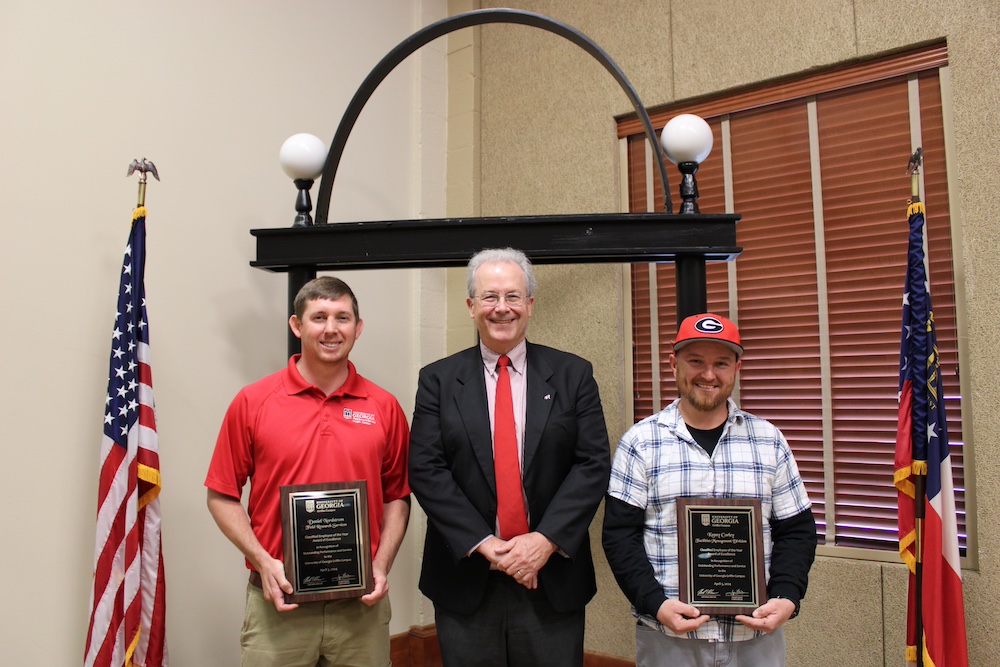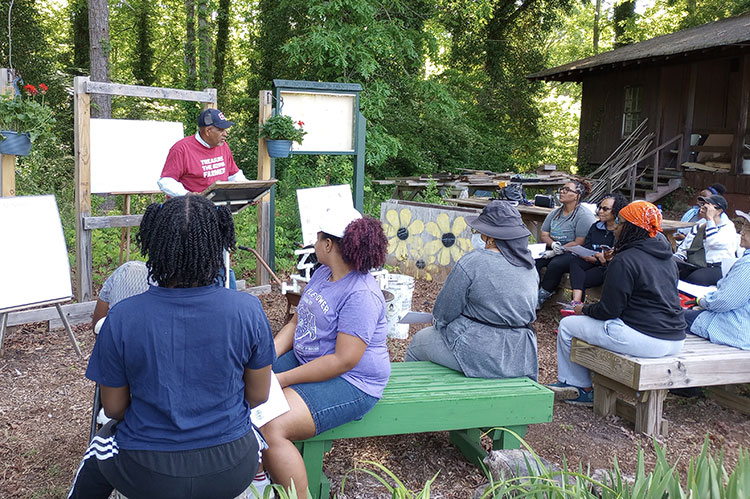By Stephanie Schupska
University of
Georgia
For those 10 years, the nation's graduation rate fell to 70 percent, a drop of about 2 percent. Georgia's 10-percent drop saw only 56 percent of its students receive a diploma in 2002.
While some education officials are concentrating on keeping high schoolers from running through the exit door instead of marching across the graduation stage, a University of Georgia expert says keeping kids in school starts long before that point.
"Even before children start school, they need support," said Diane Bales, a human development specialist and associate professor with the College of Family and Consumer Sciences.
"The biggest thing is that the issue doesn't just start in high school," she said. "It has a lot to do with attitudes. If you think you're good in school, it's something you'll continue."
Bales reminds parents and others in a child's community to start encouraging them to graduate before they even enter school. This includes reading with the child and setting up a learning environment.
"The community issue is a big one," she said. "Make sure students are part of a community where education is important. By the time they get to middle school and high school, they need to hear from their peers that finishing high school is important. Peer mentoring programs can be effective, can help them get through some of the challenges."
No single source can be attributed to the state's and nation's dropout problem.
"I don't know that we know clearly what the problems are," Bales said. "The rate is dropping everywhere. It's certainly something we need to work on."
Graduation rates dropped by an average of 5 percent in SREB states. These include Alabama, Arkansas, Delaware, Florida, Georgia, Kentucky, Louisiana, Maryland, Mississippi, North Carolina, Oklahoma, South Carolina, Tennessee, Virginia and West Virginia.
Tennessee saw the biggest drop, with 13 percent fewer graduates, but they still have more students per capita finishing high school (57 percent) than Georgia.
The only state with a higher dropout rate was South Carolina. There, only 53 percent of students graduate, according to Jay Greene and Marcus Winters' Manhattan Institute report at www.manhattan-institute.org/html/ewp_08.htm.
"This problem has been downplayed during the last few years while officials focus on assessment and academic rigor," Bales said in a recent e-mail.
It's not just a numbers game, either. Students who don't finish high school "tend to wind up in lower-paying jobs and in manual- labor jobs and have a higher likelihood of living in poverty," she said.
To some high school students, the benefits of dropping out seem better.
"They don't recognize the consequences of dropping out of high school," Bales said. "What they don't see is that future opportunity to advance and make more money."
She feels that part of the dropout problem can be tied to teen pregnancy and high-stakes high school exit exams, although more research is needed to determine their extent.
For high school students who are thinking about dropping out, Bales has a few pointers:
- Help them to think through all the consequences. Help them see beyond the immediate.
- Investigate other kinds of school programs and different schools, places and environments.
- Encourage them. Help them see what their strengths are, whether they're in writing or music or extracurricular activities. Get them involved in a peer group that encourages them to succeed in school.
- Get students the help that they might need, whether it might be a tutor, after-school help from a teacher or learning disability testing.






